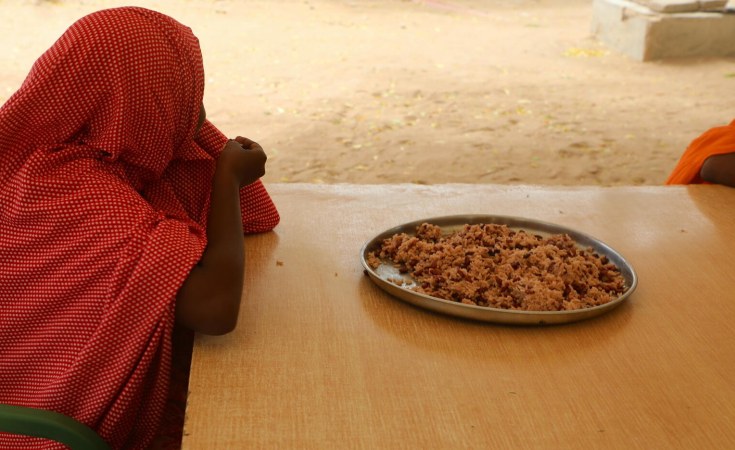Dedza, Malawi — DEDZA, Malawi--For the past three years, Lusita Maikolo has been in and out of school. Her parents could not always afford to pay her school fees, and this led to her being excluded for long periods. But the 17-year-old girl, whose sister married early after spending a year at home out of school, never gave up. Now, she is being supported to stay in school and avoid following in her sister's footsteps.
During the time she stayed at home, Lusita would help on the family farm. At the end of each harvest season, her family sold some of their surplus crops to pay the children's outstanding school fees. The teenager struggled to catch up on the lessons she had missed, despite her efforts.
"Staying at home for long periods made me fall behind in learning," says Lusita, who attends Katewe Community Day Secondary School. "However, I was determined to continue with the next class as I didn't want to lose out on education completely."
Poverty drives harmful practices
Lusita feared falling into the same trap as her sister. A year before completing her secondary education, her sister dropped out of school, after her parents were unable to pay her fees. After staying at home for an entire school year, she decided to get married.
"She always talked of being a professional, but now she is a mother of two, struggling to make ends meet, with an unemployed husband," Lusita says.
Lusita's determination was rewarded when she was selected as one of the beneficiaries of a bursary scheme supported by the UNFPA and Korea International Cooperation Agency, as part of a project to support adolescent girls and teenage mothers.
Education is a game changer
Her bursary covers her school fees, which are crucial to ensure Lusita can focus on her education. Additional support is also available for her school uniform, shoes, note books and pens.
She is one of 45 disadvantaged girls in Dedza and Mchinji districts to be selected as part of the scheme. Lusita beams: "My school performance has improved since I was selected, and now I have more time to concentrate on my studies."
So far, Katewe secondary school has three girls on the bursary scheme. Another beneficiary, Tapiwa Penuel, wishes the scheme had been available to her earlier.
"I lost a lot of time loafing at home because my parents couldn't afford to pay for my school fees," she says. "Although I tried to study on my own, I couldn't understand most of the material. I needed to be guided by the teachers."
Tapiwa is now on course to finish her secondary school education and she has big dreams. "I want to be journalist," she says. "Ever since I was young, I have dreamed about this career. And now that I have a helping hand to finish my studies, I will work to make my dreams come true."
Macdonald Chinkombelo, who is the Deputy Headmaster at Katewe, believes the scheme is a game changer for these girls.
"It's worrying that some bright young girls see their dreams cut short because they come from a poor background. The bursary scheme helps them finish their secondary schooling and concentrate on education as a pathway, not marriage or having children."
Education is a crucial catalyst for change for girls. Girls and boys' access to primary level education has increased exponentially in Malawi since the introduction of compulsory primary education in 1994. Increased enrolment and a reduction in dropout rates are major markers of progress towards providing for an inclusive education system.
However, many challenges persist, including low enrolment rates at secondary level, large classrooms that average 60 students per teacher, and the low quality of teaching resources. Girls are also more likely than boys to drop out of school. Poverty, unpaid domestic work in the home and harmful practices, including child marriage and teenage pregnancy, are key drivers of adolescent girls leaving school before completing the primary certificate.


